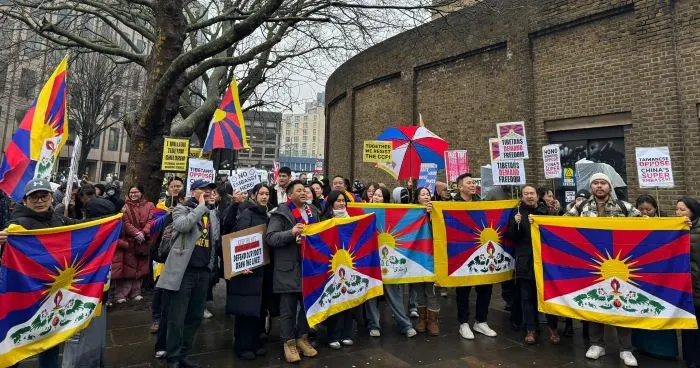Chinese presence in Balochistan
On September 7, Aslam Bhootani, lawmaker from Balochistan, decried “ongoing exploitation” by the Chinese companies working on various power projects in Balochistan, accusing them of destroying environment and marine life, besides denying jobs to locals. Bhootani charged that “No doubt, China is our friend and helped us on numerous occasions. We have no complaints against China. But the Chinese companies are playing havoc in the area,” he affirmed, asking the government to “rein in the companies”. Bhootani also asserted that it seemed those companies considered themselves not answerable to anyone as they had been operating under the protection of Pakistani Army. According to him, the Chinese companies, which had set up a coal plant at Lasbela, were destroying the marine life, and ending the livelihoods of local fishermen.
Pakistani army and the central government are controlling the region of Balochistan with an iron fist and exploiting its precious resources. Now, the area is open to China for exploitation with the China-Pakistan Economic Corridor (CPEC) deal and ongoing projects.
The acquisition of Gwadar port, exclusion of Baloch firms and labour from Gwadar and associated CPEC projects, exclusion of native fishermen and destruction of natural ambience have intensified pre-existing feelings of regionalism in Balochistan, with Baloch nationalist forces either wholly rejecting the project or voicing for greater share in them. The Chinese projects are apparently causing dislocation of Balochi people from their settlements. For instance, fishermen living in some of the oldest neighborhoods of Gwadar for centuries are now rehabilitated to the north of Gwadar, Noken Mullah Band. Many view this as a plan to coerce locals to leave the area.
On February 5, 2022, Imran Khan and Premier Li Keqiang signed an agreement to implement the second phase of CPEC, which is expected to link Xinjiang, the region in the far west of China, with the port of Gwadar in Balochistan. Before Imran Khan flew to China, the Majeed Brigade of the Baloch Liberation Army (BLA) carried out two attacks against the operational centres of the local security forces in the districts of Noshki and Panjgur. In July, 2022, Dr Allah Nazar Baloch, the chief of the Balochistan Liberation Front (BLF) in a video message urged China to stop CPEC projects in Balochistan as it has forcibly displaced lakhs of indigenous people and destroyed their properties. He stated, “I, on behalf of the Baloch nation, want to tell China that you should avoid being a partner of our occupier (Pakistan)…As you have gone through a similar movement and revolutionary process, I want to tell the communist party, in Balochistan, in the name of CPEC you are expelling the Baloch nation, you are banishing Baloch from their native land, you are destroying the properties of the Baloch nation”.
Earlier in April 2021, a suicide bomber blew himself up outside the luxurious Serena Hotel, in Quetta, capital of Balochistan, killing at least 4 people and wounding 12. The Chinese Ambassador to Pakistan, Nong Rong, had checked-in to the hotel and was the presumed target, although he was not in the building at the time of the explosion.
Nevertheless, the number of Chinese stakeholders investing in Balochistan has grown steadily over the past two decades. A Chinese state-owned company built, and now operates, Balochistan’s strategically located Gwadar port, which some argue holds the key to China’s energy supremacy. The Arabian Sea port is the centre of the US$62 billion CPEC, mostly coined as the ‘game-changer’ project in China’s Belt & Road Initiative- BRI, allowing it a gateway between Western China and the Indian Ocean. Other projects as part of a mega development under the CPEC are also being funded by China in Balochistan.
Locals accuse Beijing of stealing Balochistan’s mineral resources. Saindak copper-gold mine, located near Saindak in Chagai district, has been cleared for a lease running till 2035. On the other hand, Chinese company, MCC Resources Development Company has been given the task of mining. Explaining the sorry situation, Senator Akram Baloch said that to appease China, Pakistan is giving contracts to Beijing without taking the Baloch people into confidence. Despite Chinese investments, Balochistan remains extremely poor with no proper health facilities, education, and housing, or even clean drinking water. He further noted that “the alleged plundering of resources will further stoke anti-Chinese feelings in the province. In addition, experts believe the Saindak mine has approximately 412 million tons of copper and gold reserves.
Amidst all the disorder and conflict, in a strategic move, China recently attempted to talk directly with ethnic Baloch parliamentarians to address their concerns, bypassing Pakistani authorities. In August, 2022, the Chinese envoy to Pakistan, Nong Rong, held a series of one-to-one meetings in Islamabad with politicians from Balochistan to discuss Baloch nationalists’ grievances with China. “What I observed from my conversation with Mr. Nong, I felt Beijing has realized the scale and sensitivity of the conflict in Balochistan,” said a Baloch politician who met the Chinese ambassador.
Chinese presence and dominance in the region appears to be alienating the locals in Balochistan and instigating them to attack Chinese installations.













